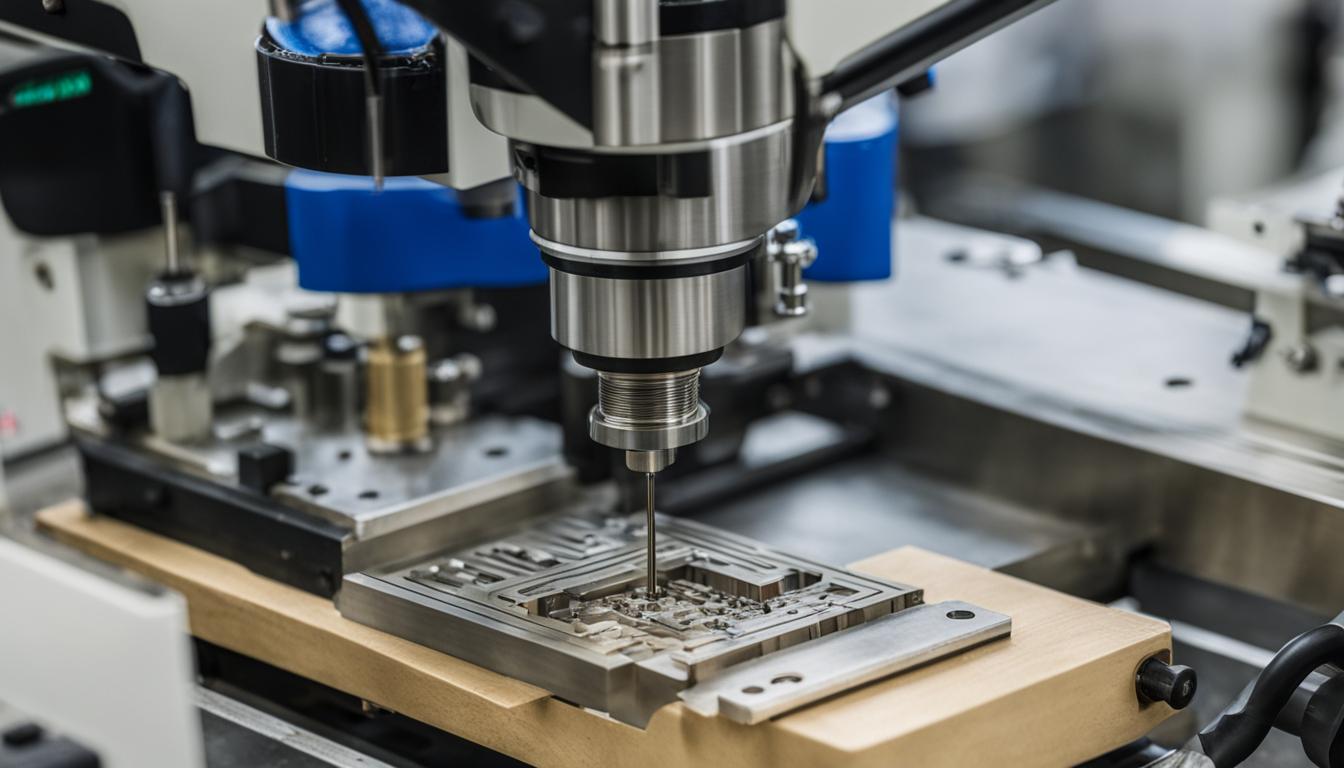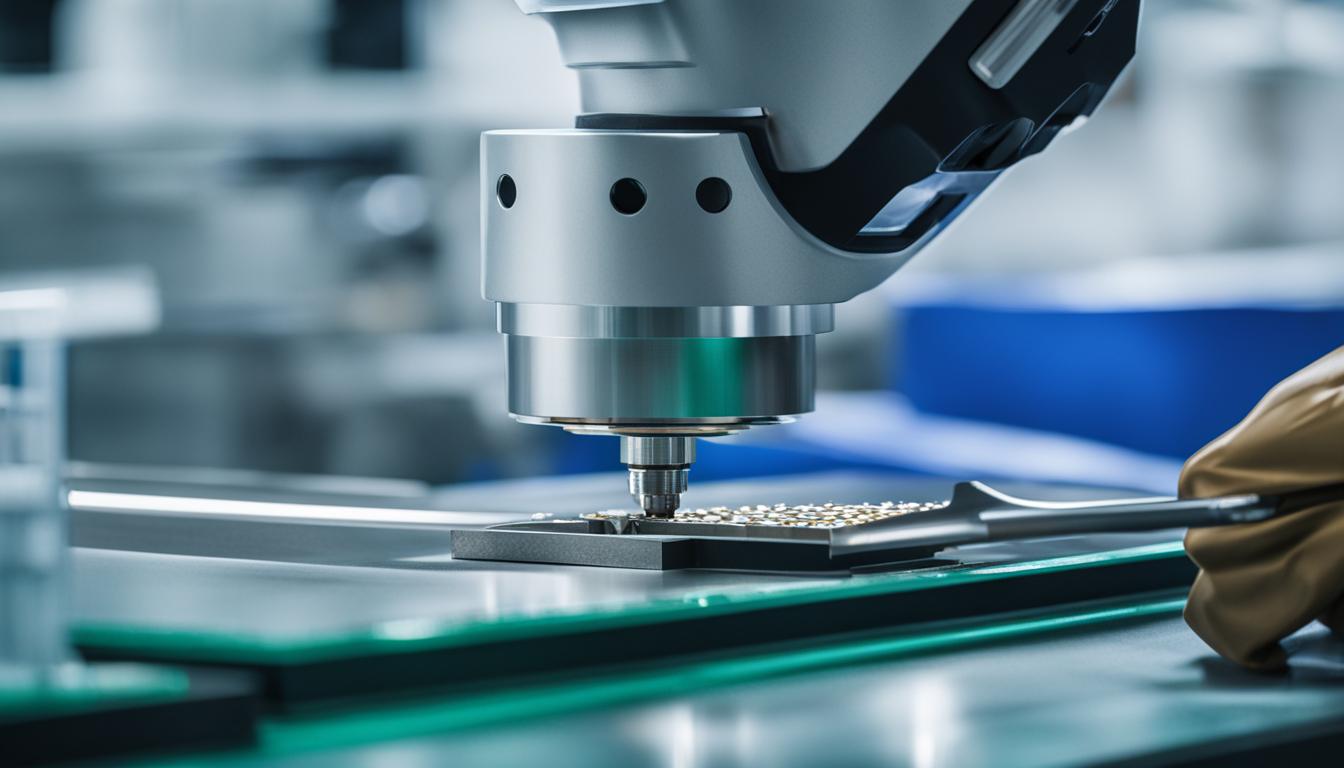CNC machining technology has made significant advancements in the production of customized medical devices, revolutionizing the field of medical device manufacturing. With precision, accuracy, and versatility, CNC milling ensures that medical parts adhere to exact dimensions, achieve micron-level tolerances, and replicate complex geometries. This technology allows for cost-effective prototyping and rapid iterations in production, making it a valuable tool in the creation of customized medical equipment.
Driven by the need for precision, quality, adherence to medical standards, and flexibility, CNC machining has become indispensable in the medical industry. It is used in the manufacturing of various medical devices, including surgical instruments, orthopedic implants, dental instruments and implants, diagnostic equipment, prosthetics and exoskeletons, and robotic surgery components.
As we look towards the future of medical device manufacturing in 2024, CNC machining will continue to play a pivotal role. Its ability to produce precise, customized medical parts with complex geometries ensures the delivery of high-quality medical devices. Stay tuned to learn more about the key applications, standards, and transformative impact of CNC machining in the medical industry.
Key Applications of CNC Machining for Medical Devices
CNC machining plays a crucial role in the production of various medical devices. It is used to manufacture surgical instruments such as scalpels, forceps, and hemostats, ensuring sharpness, precision, and a firm grip. CNC machining is also employed in the production of orthopedic implants, including joint replacements and bone plates, which require custom fitting and stability. Dental instruments and implants are crafted using CNC machining to achieve precise sizes and shapes. Diagnostic equipment, such as ultrasound probes and MRI machine components, relies on CNC machining for the production of intricate parts. CNC machining is also used in the production of prosthetics and exoskeletons, enabling tailored fittings and improved mobility. Furthermore, CNC machining is essential for creating components for robotic surgery systems, including arms and endoscopes.
Table: Examples of Medical Devices Manufactured Using CNC Machining
| Surgical Instruments | Orthopedic Implants | Dental Instruments and Implants | Diagnostic Equipment | Prosthetics and Exoskeletons | Robotic Surgery Components |
|---|---|---|---|---|---|
| Scalpels | Joint Replacements | Dentures | Ultrasound Probes | Artificial Limbs | Robotic Arms |
| Forceps | Bone Plates | Dental Implants | MRI Machine Components | Exoskeletons | Endoscopes |
| Hemostats | Spinal Implants | Orthodontic Braces | X-ray Machine Parts | Prosthetic Limbs | Robotic Surgical Tools |
As shown in the table above, CNC machining is utilized for a wide range of medical devices, highlighting its versatility and ability to meet specific requirements. Whether it’s the precise shaping of dental implants or the intricate components of robotic surgical systems, CNC machining enables the production of high-quality medical devices that enhance patient care and treatment outcomes.
By leveraging CNC machining technology, medical device manufacturers can produce customized and advanced devices that deliver superior functionality and performance. This technology enables the creation of complex geometries and ensures precise adherence to design specifications. The use of CNC machining in medical device manufacturing not only enhances the efficiency of production processes but also contributes to the overall quality and reliability of the devices.
As the demand for customized medical devices continues to grow, CNC machining remains a vital tool in the medical industry. Its applications span across surgical instruments, orthopedic implants, dental equipment, diagnostic devices, prosthetics, exoskeletons, and robotic surgery components. With CNC machining, medical device manufacturers can meet the evolving needs of healthcare professionals and patients, providing innovative solutions that improve patient outcomes and quality of life.
Standards in CNC Machining for Medical Devices
When it comes to CNC machining for medical devices, adherence to specific standards is crucial to ensure quality, safety, and regulatory compliance. One of the most important standards followed by organizations in the medical device manufacturing industry is ISO 13485. This standard outlines the requirements for quality management throughout the entire lifecycle of medical devices, from design and development to production and post-market surveillance.
In addition to ISO 13485, the FDA’s Quality System Regulation (QSR) plays a significant role in the United States. The QSR focuses on the methods, facilities, controls, and processes involved in manufacturing medical devices. It ensures that CNC machining for medical devices meets the stringent regulations set by the FDA.
Another critical aspect of CNC machining for medical devices is the selection of CNC medical-grade materials. These materials need to demonstrate biocompatibility, sterilizeability, and lack of toxicity. They must also possess the necessary physical and mechanical properties required for medical applications. Furthermore, CNC medical-grade materials should exhibit exceptional chemical resistance to bodily fluids, drugs, and other potentially damaging substances.
| Standards in CNC Machining for Medical Devices | Key Elements |
|---|---|
| ISO 13485 | Quality management requirements for the entire device lifecycle |
| FDA Quality System Regulation (QSR) | Regulations for methods, facilities, controls, and processes in medical device manufacturing |
| CNC medical-grade materials | Biocompatibility, sterilizeability, lack of toxicity, physical and mechanical properties, chemical resistance |
By adhering to standards such as ISO 13485 and the FDA’s QSR, and using CNC medical-grade materials, CNC machining can ensure that medical devices meet the stringent requirements of the medical industry. These standards and materials contribute to the overall safety, quality, and effectiveness of medical devices manufactured through CNC machining.
Why CNC Machining is a Perfect Choice for Medical Devices
CNC machining has emerged as the perfect solution for manufacturing medical devices due to its precision, accuracy, and ability to produce complex parts. The tight tolerances achieved through CNC machining ensure that medical devices meet exact specifications with utmost precision, enabling them to function effectively. This level of precision machining is crucial when it comes to creating intricate medical components that require high accuracy and consistency.
One of the key advantages of CNC machining for medical devices is the use of advanced tools and cutting-edge technology. These machines are equipped with sophisticated tools that can handle a wide range of materials required for different medical applications. Whether it’s stainless steel, titanium, or biocompatible plastics, CNC machining can accommodate various materials, ensuring the perfect fit for each medical device.
Furthermore, CNC machining offers a vast array of material options, allowing for the customization of medical devices based on specific patient needs. From orthopedic implants to surgical instruments, CNC machining provides the flexibility to create customized medical devices with ease.

Advantages of CNC Machining for Medical Devices:
- Precision machining: CNC machining offers highly accurate and precise manufacturing, ensuring that medical devices meet the strictest quality standards.
- Tight tolerance: CNC machining can achieve micron-level tolerances, guaranteeing that medical devices adhere to exact dimensions.
- Advanced tools and technology: CNC machines are equipped with advanced tools and cutting-edge technology, allowing for the production of complex parts and geometries.
- Material options: CNC machining can work with a wide range of materials, including metals and biocompatible plastics, offering versatility in medical device manufacturing.
- Customization: CNC machining enables the customization of medical devices, ensuring a perfect fit for each patient’s unique needs.
| Advantages | Description |
|---|---|
| Precision machining | CNC machining offers highly accurate and precise manufacturing, ensuring that medical devices meet the strictest quality standards. |
| Tight tolerance | CNC machining can achieve micron-level tolerances, guaranteeing that medical devices adhere to exact dimensions. |
| Advanced tools and technology | CNC machines are equipped with advanced tools and cutting-edge technology, allowing for the production of complex parts and geometries. |
| Material options | CNC machining can work with a wide range of materials, including metals and biocompatible plastics, offering versatility in medical device manufacturing. |
| Customization | CNC machining enables the customization of medical devices, ensuring a perfect fit for each patient’s unique needs. |
The Transformation of the Medical Industry through CNC Machining
CNC machining has had a profound impact on the medical industry, revolutionizing the way precise and custom-designed medical parts are produced. With its ability to achieve intricate and complex geometries, CNC machining has become an indispensable tool in medical device manufacturing. The technology ensures the highest level of quality and accuracy, meeting the stringent requirements of the healthcare sector.
By utilizing CNC machining, medical professionals can create precise designs that are tailored to meet the specific needs of patients. This level of customization has paved the way for the development of medical devices that deliver optimal performance and improved patient outcomes. With CNC machining, complex parts can be manufactured with ease, enabling medical advancements that were once considered impossible.
As the medical industry continues to evolve, the advancements in CNC machining technology are poised to drive further innovation. The ability to produce highly specialized and advanced medical devices using CNC machining will not only improve the efficiency of healthcare delivery but also enhance patient care. With CNC machining, the future of the medical industry looks promising, as it enables the production of customized, precise, and reliable medical devices that meet the ever-increasing demands of the healthcare landscape.
